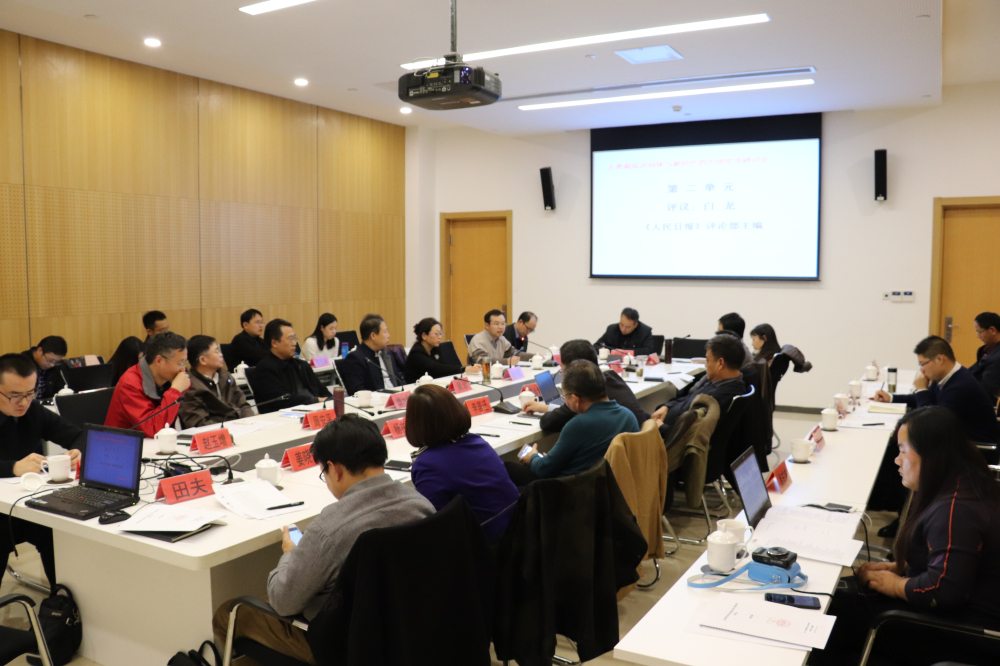Community of Shared Future & Law of China in the New Era Symposium Held in CUEB
On Nov.17th, Community of Shared Future & Law of China in the New Era Symposium, co-sponsored by CUEB School of Law and Editorial Department of Legal Forum, was held in the 1st Meeting Room of Boyuan Building. Revolving around its theme-“Community of Shared Future & Law of China in the New Era”, the symposium makes a multi-dimensional response from the view of law to the new requirements brought by the theme of “Community of Shared Future” to China’s science of law, legislation and rule of law.

Prof. Mi Xinli, Party secretary of CUEB School of Law, presided over the opening and introduced professors present. Prof. Yu Zhong from School of Law addressed the meeting, introducing the aim of the symposium and the increasingly abundant meaning of its theme. Wu Yan, chief editor of Legal Forum—the co-sponsor of this symposium, noted that the concept of a community of shared future, first put forward in the 18th National Congress of the Communist Party of China, has been incorporated into several UN resolutions. Though China’s systems and schemes for it emerge, response from the law community is still lacking.
The six-and-a-half-hour symposium, divided into four sessions, touches on Nomology, International Law, Science of Legal History, Constitutional Law, Science of Economic Law and International Politics. 31 scholars attended the meeting-17 of them made brilliant keynote speeches, 10 made comments and 5 presided over meetings. The symposium was a huge success with 13 academic topics including “the Relation between Tian-Xia Doctrine (Inclusiveness of Everything) and Cosmopolitanism”, “Global Governance and Multi-Governance” and “the New Theory of Datong (Great Harmony)”. The symposium provided constructive references for the formulation of a community of shared future and CUEB School of Law’s profile was also boosted through hosting the event.
In the end, Wu Yan and Prof. Yu concluded the symposium. Wu put that attendees analyzed and elaborated on the concept of a community of shared future and sorted out its theoretical basis and evolution. It is not only a concept promoted by China, but also a critical issue calling for multinational cooperation. He noted that besides the enactment and tightening of international regulations and laws, it is of greater urgency to dock domestic laws with signed international conventions. To conclude, China’s future is interlocked with that of the world, China’s issues exert a potent impact on the world and vice versa.
Some 30 experts and scholars from over 10 institutes of higher learning, scientific research institutions and news media including CUEB, Chinese Academy of Social Sciences, Tsinghua University, Renmin University of China, China University of Political Science and Law, East China University of Political Science and Law, Northwest University of Politics and Law, Shandong University, Nanjing University, Yunnan University, Qingdao University of Science and Technology, National Judges College, China National School of Administration, Editorial Departments of Legal Forum and Theoretical Exploration, People's Daily and Guangming Daily and FXCXW.ORG attended the symposium.
